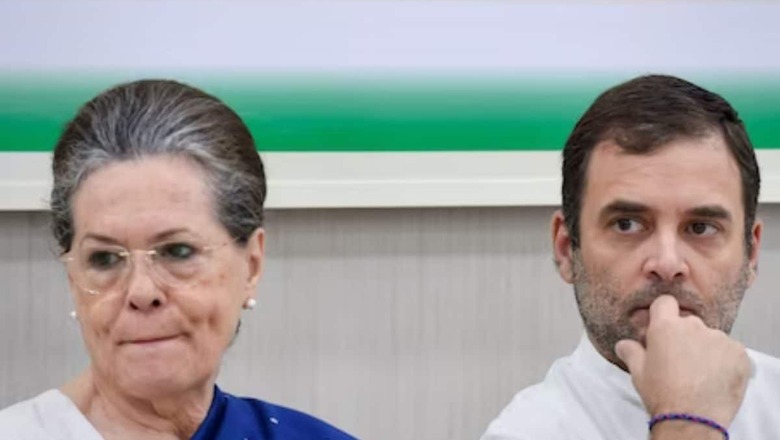
views
Among his many acts that have repeatedly disconcerted the Opposition — especially the Congress in the last decade — is Narendra Modi’s insistent and persistent dismantling of the parasitical stranglehold of the Congress’ first family on institutions and narratives. This has been among the most impactful of Modi’s approaches to cleanse the system and mindsets. The domineering sense of entitlement that the Congress’ first family has crassly demonstrated over decades, led it to sideline and suppress the legacies of a number of social and political leaders, who in their own way and committedly, contributed to the shaping of independent India’s narrative.
The sense that it and it alone has shaped the destiny of post-independence India has led the members of the Congress’ first family, till the other day, to maintain an arrogant aloofness, a haughty disapproval of any effort, to evaluate or narrate the contributions and achievements of those who left an imprint in the shaping of the India narrative and vision since independence. Those who did not kowtow to the Congress’ controlling family or were successful in emerging as leaders of the masses in their own right were marginalised or cornered and all attempts were made to arrest their political trajectory. Those who remained in the Congress but displayed sagacity and political acumen, had charisma, a mind and standing of their own, faced a cul-de-sac during their lifetime and attempts at obliteration of their legacy post their demise.
So self-obsessed was the Congress family with itself that it heaped derision on such leaders and displayed the meanest approach when it came to speaking of their legacies while heaping themselves with awards and decorations. The denial of Bharat Ratna for decades to the likes of Sardar Patel, Babasaheb Ambedkar and a host of others stemmed from that mentality. For those who can recall, Sardar Patel’s centenary in 1975 was accorded a perfunctory commemoration, while Nehru’s centenary celebrations in 1989 were observed with great fanfare and pomp. In fact, none less than the late Pranab Mukherjee, a lifelong Congressman, was to note, how the “Rajiv-Sonia regime has been guilty of perpetuating the Gandhi-Nehru legacy while ignoring other PMs such as Lal Bahadur Shastri, P.V. Narasimha Rao, who were from the Congress…”
The refusal to allow Narasimha Rao’s body to enter the premises of the AICC headquarters as a final farewell stemmed from that meanness and arrogance. A rueful Pranab once remarked how “Sonia and her children believe that apart from their own family, no other leader has made any contributions to the Congress or the nation.” This vitiated mindset led to a rabid family sycophant such as Mani Shankar Aiyar to remove the plaque commemorating Veer Savarkar’s incarceration in Cellular Jail. It also led the Congress’ first family to pettily oppose the installation of Savarkar’s portrait in Parliament’s Central Hall when the Parliamentary Committee that was tasked to work it out had unanimously endorsed the proposal. There were non-family Congressmen on the committee, with Pranab Mukherjee himself being one, who endorsed the proposal as well.
It is also this attitude which has led them to refuse to acknowledge the huge and historic effort that has gone behind envisaging and creating the state-of-the-art Prime Ministers’ Museum. For the first time since independence, the contributions and legacies of all prime ministers of India have found a permanent place in the heart of the national capital, with thousands daily thronging its portals and absorbing the gripping story of the rise of free India through trials and tribulations. While people across the country laud its uniqueness, the Congress’ first family has refused to acknowledge its utility.
It is anathema to them that leaders, apart from the family, should find a place in it. Their primary weapon, over this one decade, has become what Prime Minister Modi has aptly and sharply described — the ‘cancel culture’. This habitual resorting to the ‘cancel culture’ essentially stems from an acute sense of self-arrogating entitlement and an undemocratic mindset. This anti-democratic mindset of the Congress’ first family did not allow its non-family leaders to rise, refused to acknowledge the contributions of other leaders in our national growth, and eventually led to the asphyxiation of the Congress itself.
Pranab Mukherjee noted in his diary a month before his passing, as brought to light by his daughter Sharmishtha Mukherjee, in her recent book, ‘Pranab: My Father’, “By making Congress a preserved playground for Gandhi-Nehru family, Congress lost its democratic character which impacted the polity of the country. After independence, if 5 family members of the same family controlled the Congress presidency for 37 years, it speaks of the worst form of hegemony. The family today is no longer providing vitality to the organisation but eating away its strength…”
Naturally, its members are incapable of realising the comprehensive march of inclusion that is taking place in India, they are incapable or untrained to appreciate or understand that nation-building is not the preserve or prerogative of one family, but is the result of the tapasya – undeterred meditation and application of many minds and lives who have also, in their own way and manner, wanted to see India great, to see her shorn of decrepit accumulations, false layers and to make her rise to her true potential.
By acknowledging and commemorating stalwarts of the past who have been neglected or marginalised, or whose contributions were minimised just because they don’t belong to a particular political eco-system or lineage, Prime Minister Narendra Modi has not only displayed stellar statesmanship but has forever liberated the India narrative and the dream from the stranglehold of one family and its politics. The foundations for an India, for the next thousand years, can only be laid in this way and manner. Those who are trying to cancel that attempt will eventually be cancelled by the people themselves.
The author is Chairman, Dr Syama Prasad Mookerjee Research Foundation & Member, BJP National Executive Committee. Views expressed in the above piece are personal and solely that of the author. They do not necessarily reflect News18’s views.











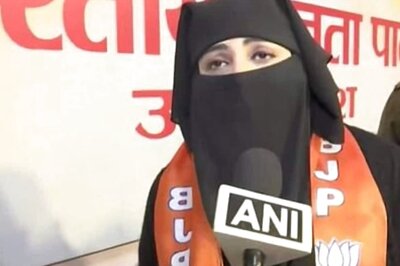
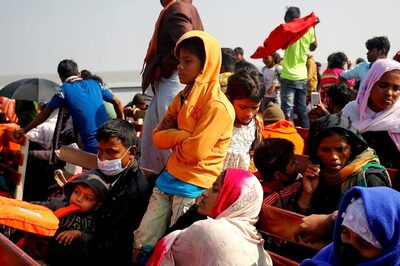

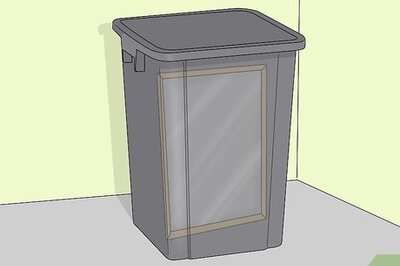

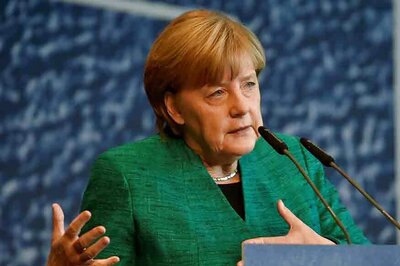



Comments
0 comment